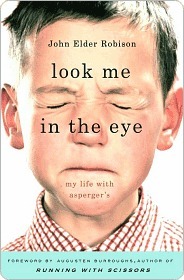More on this book
Community
Kindle Notes & Highlights
Read between
June 11 - June 24, 2023
To this day, when I speak, I find visual input to be distracting. When I was younger, if I saw something interesting I might begin to watch it and stop speaking entirely. As a grown-up, I don’t usually come to a complete stop, but I may still pause if something catches my eye. That’s why I usually look somewhere neutral—at the ground or off into the distance—when I’m talking to someone.
I figured out how to talk to other children. I suddenly realized that when a kid said, “Look at my Tonka truck,” he expected an answer that made sense in the context of what he had said. Here were some things I might have said prior to this revelation in response to “Look at my Tonka truck”: a) “I have a helicopter.” b) “I want some cookies.” c) “My mom is mad at me today.” d) “I rode a horse at the fair.” I was so used to living inside my own world that I answered with whatever I had been thinking. If I was remembering riding a horse at the fair, it didn’t matter if a kid came up to me and
...more
“That’s terrible! Oh, I just feel awful!” Some people will cry and carry on, and I wonder … Do they really feel that, or is it just a play for attention? It is very hard for me to know. People die every minute, all over the world. If we tried to feel sorry for every death, our little hearts would explode.
As a logical thinker, I cannot help thinking, based on the evidence, that many people who exhibit dramatic reactions to bad news involving strangers are hypocrites.
As I got older, I found myself in trouble more and more for saying things that were true, but that people didn’t want to hear.
I’m a very logical guy. Psychologists say that’s an Aspergian trait. This can lead to trouble in common social situations, because ordinary conversation doesn’t always proceed logically. In an effort to improve my own interpersonal skills, I have studied computer programs that engage in conversation with people. The best programs follow logical pathways to arrive at suitable responses. The results, however, don’t always sound natural, and I am not sure that I do much better than the machines. For example, last week my friend Laurie said, “One of my girlfriends is having an affair. And the guy
...more
This highlight has been truncated due to consecutive passage length restrictions.
Thinking about conversations like the one I had with Laurie makes me mad. People approach me, uninvited, and make unsolicited statements. When they don’t get the response they expect, they become indignant. If I offer no response at all, they become indignant at that. So there is no way for me to win. Given that line of reasoning, why talk to people at all? Well, many autistic people don’t, possibly for that very reason.
I believe that some kids who are in the middle to more high-functioning range of the autism continuum, like me, do not receive the proper stimulation and end up turning inward to such an extent that they can’t function in society, even though they may be incredibly brilliant in some narrowly defined field, like abstract mathematics.
Adults were able to deal with my conversational limitations better than children. They could follow my disconnected responses, and they were more likely to show interest in anything I said, no matter how bizarre. Had I not been drawn out by interested grown-ups, I might well have drifted farther into the world of autism.
I didn’t have to know everything. Other people could tell me the answers. I didn’t have to notice everything. My friends would look out for me. Suddenly, I had a revelation: This is what life is like for normal people.
And I never turned to antidepressants or liquor or pot or anything else. I just worked harder. I always figured I’d be better off solving a problem as opposed to taking medication to forget I had a problem.
But damage is not always permanent, nor is it always passed down from one generation to the next.
This insight was inspiring to me because it shows that our brains continue to develop throughout our lives. This is completely counter to what I’ve often heard but never accepted: “If you’re autistic, you never change.”


